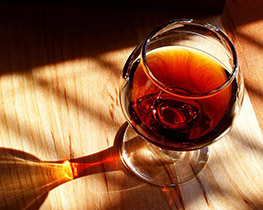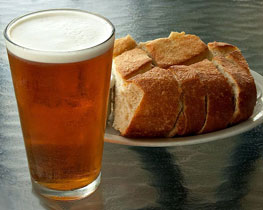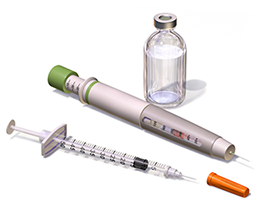What do I need to think about when I drink alcohol?
We now know how the liver works with Diabetes and alcohol, but what does this mean in terms of having a drink when you have Diabetes?
Alcohol ultimately causes a blood glucose lowering affect. Therefore, it may cause hypoglycaemia if not managed correctly. Where the hypo occurs depends on many factors, some of which are listed below [click images for more information]:
Alcohol and diabetes (2:09)
Remember: initially when drinking, glucose levels can be high, especially if the drink has a high carbohydrate content. You are advised not to correct this with rapid insulin, but you must take your basal insulin as normal to prevent hyperglycaemia.
Key Messages to make drinking with diabetes safer:
- If possible, let the people you are drinking with know that you have diabetes.
- Carry hypo treatment with you at all times.
- Have ID that states that you have diabetes.
- Never drink on an empty stomach.
- Alternate between alcoholic and non-alcoholic drinks.
- Try and avoid alcohol with a high sugar content such as alcopops, fruit ciders, sweet wines, liqueurs.
- Don’t bolus for carbohydrates in drinks.
- Don’t use a correction dose for high sugars.
- Have carbohydrate snacks during the drinking session and before you go to bed.
- Watch out for hypoglycaemia for the next 24 hours.
- ALWAYS take your long acting insulin as usual to prevent hyperglycaemia.

Wikimedia / public domain
Carbohydrate content of the drink
If the drink has no carbohydrate in it, for example, whisky, and you drink enough of it to have an impact on how the liver’s functioning (this is individual but usually about 2 units) then your blood sugars are likely to drop soon after the drink.
If your drink is high in carbs (e.g. sweet flavoured cider) and you have several, your blood sugar will at first increase and may become high.
Your blood sugar will eventually decrease because of the effect of the alcohol, but it may be some time after the drink.

Wikimedia / public domain
Carbohydrate consumption before, during and after the alcohol
As you know, carbohydrates have a huge impact on blood sugars. If you are drinking alcohol and you do not have any carbohydrate to eat, the chances are that your sugars will drop and you will be at risk of a hypo. The timing of the hypo will depend on many factors.
If you have carbohydrate before, during and after drinking alcohol, you lower your risk of hypos because you are continually digesting the carbohydrate which will end up in your blood stream and prevent your sugars from dropping.
It is important that you don’t take rapid insulin with your before bed snack.
Amount of insulin in the body
If you have too much insulin in your body - for example you might have corrected for a high blood sugar or taken too much insulin for the carbohydrate meal you had before you went out for a drink - you will be at greater risk of having a hypo.
There will be excess insulin in your body, which will naturally need to do its job of getting sugar in the blood to the cells in the body. So the blood sugar will fall. This drop will be further affected by the alcohol and its effect on the liver.
Physical activity sometimes associated with alcohol
There are many activities associated with alcohol. To name a few: dancing, walking from restaurant to pub, to night club and walking home. There may also be the possibility of the activity of sex at some point during the drinking session, if alcohol is not taken in excess!!
All these activities will lower blood sugars and with the lowering effect of the alcohol that is keeping the liver from doing its job, hypo risk is even greater.


All efforts have been made to ensure materials created by the EDU comply with current accessibility guidelines (JISC: Support for learners with disabilities).
If further assistance is required with accessibility matters please contact the student support section in your academic partner UHI: Accessing learner support.
We welcome any comments on how to improve this unit. Please feel free to pass these on at any time.
If you have any difficulty viewing this resource please contact EDU (edu@uhi.ac.uk) with:
- the name of the resource;
- a description of the problem (please give as much detail as possible);
- the section of the resource where the problem occurred;
- your internet browser (you can check your browser version at: http://detectmybrowser.com/).
UHI provides links to external sources of information and may refer to specific Web sites, products, processes or services within this resource. Such references are examples and are not endorsements and whilst every effort is taken to ensure the accuracy of information provided UHI is not responsible for any of the content or guidance. You are advised to exercise caution.
Download a copy of this resource in PDF format.
You can also print individual pages by printing directly from the browser.

